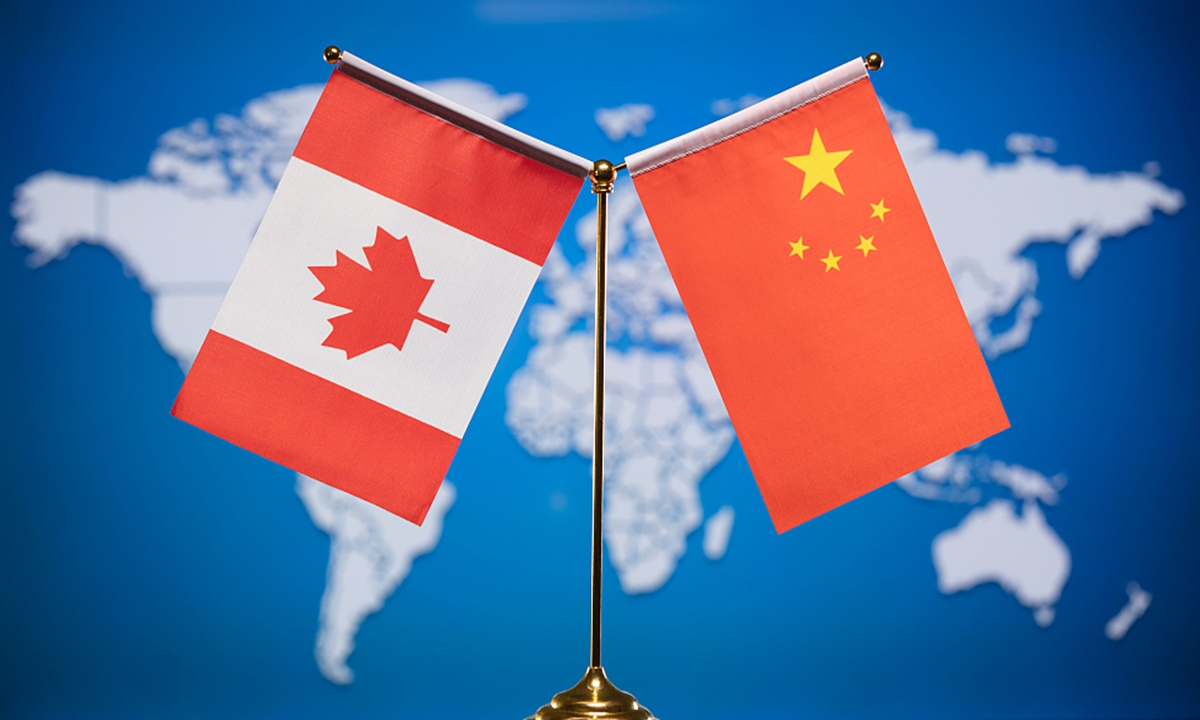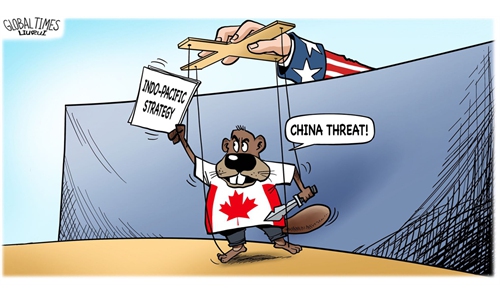Experts warn of harm to Canada's national image as Trudeau seeks probe into ‘Chinese intervention in elections’

Photo: VCG
Canada is set to examine whether China interfered in its 2021 elections, the Associated Press reported on Tuesday, after an announcement from Canadian Prime Minister Justin Trudeau on Monday. However, the major objective of his move is to coordinate Canada's diplomatic strategy to match that of the US by creating an unfriendly atmosphere toward China among the Canadian public, experts said.
This will harm Canada's national image, reducing it to the status of a "US follower," observers warned.
According to media reports, Trudeau will appoint a special investigator to decide whether there should be a public inquiry into reports of Chinese interference in Canada's elections. He also asked a parliament national security committee to examine classified information on the matter.
While announcing his decision, Trudeau reiterated that "all political leaders agree that the election outcomes in 2019 and in 2021 were not impacted by foreign interference."
The reason for this investigation is that Canada is anxious to prove that its diplomatic strategy is coordinated with that of the US, Li Haidong, a professor with the China Foreign Affairs University, told the Global Times on Tuesday.
"To this end, Canada is trying very hard to create an unfriendly atmosphere in its society by hyping up negative issues related to China,'' Li said.
Li noted that the idea of "interference in elections" could be effective, "because it is a topic that can make both the public and the political elite very sensitive and can easily stimulate society to form an irrational and pathological impression."
China's Foreign Ministry has responded to the issue several times. In the latest response on March 2, 2023, Chinese Foreign Minister Qin Gang met with Canadian Foreign Minister Mélanie Joly on the sidelines of the G20 Foreign Ministers' Meeting in New Delhi and refuted the fallacy that the Chinese Embassy in Canada tried to "interfere" in Canadian elections.
Qin said the accusation is utterly groundless. China has never meddled in other countries' internal affairs, and opposes any interference in other countries' internal affairs.
He urged the Canadian side to take concrete measures to ensure the normal operation of Chinese diplomatic missions in Canada and prevent rumors and hype from disrupting bilateral relations.
However, for Canada at this moment, the truth and the outcome of the possible investigation simply do not matter, experts say.
"As things stand now, the negative effect of Canadian politicians' constant speculation on the "China threat" theory has already taken shape," Li said. "And that's their main objective. Canadian politicians want their people to believe that China is a country that can't be trusted."
A public opinion poll launched by the Angus Reid Institute, a Canadian foundation, in March shows that most Canadians believe China did try to interfere in elections.
As for the results of the survey, Li said they are likely to be vague. "What's obvious is that the people advocating the survey don't really care about the results. As long as the hype about this theory lasts long enough, the "China threat" theory will keep spreading among the Canadian public."
However, the result of this self-righteous maneuvering by Canadian politicians will be harm to Canada's national image, Li warned.
"If Canada continues to follow US foreign policy in this way, when people think of Canada, they will think of a US follower," Li said. "Such a move would be detrimental to both the improvement of China-Canada relations and Canada's international image."
Bilateral ties can only be built on the basis of mutual respect, equality and mutual benefit, and China-Canada relations are no exception, then-Chinese Foreign Ministry spokesperson Zhao Lijian said in November 2022 during a regular news conference on the topic.


